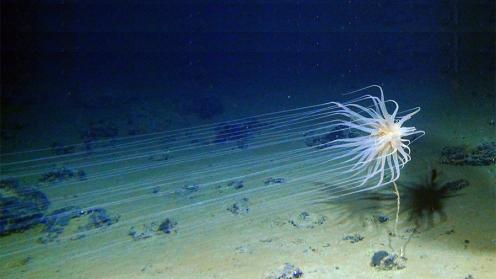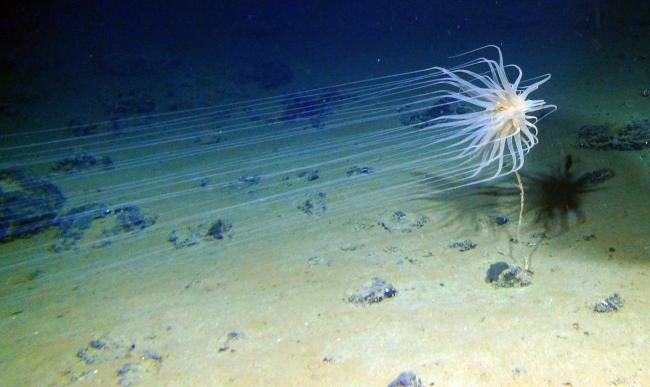About
As well as talks that may shape the negotiations on deep-sea mining, some ISA members have suggested an additional agenda item on a general policy of the ISA for the protection and preservation of the marine environment. The Assembly is also expected to hold elections for the position of ISA Secretary-General.
Final report
Summary report 15 July – 2 August 2024
All coverage
Is the often-polarized debate over the commercial exploitation of deep-sea mineral resources heating up? Many expect that the forthcoming meetings of the International Seabed Authority (ISA) will be key in determining the direction of commercial deep-sea mining, a topic that has been attracting increasing interest over the last few years, including by the media and the public.
Why is this discussion so polarized? To date, 27 countries support a moratorium or precautionary pause on deep-sea mining. At the same time, some ISA members favor expediting commercial activities through the finalization of the necessary regulatory framework. Respective arguments are well established; they broadly refer, on the one hand, to the challenges the ocean faces and the largely unknown deep-sea ecosystems, and, on the other, to the minerals that the deep-sea environment can supply, pointing towards the energy transition away from fossil fuels.
Negotiations during the second part of the 29th ISA Session will center around the development of regulations for the exploitation of deep-sea mineral resources. Delegates will have in front of them a consolidated text of the draft exploitation regulations, which was introduced earlier this year at the first part of the 29th session. They either have to make considerable progress in complex issues or take a decision on the way forward. During the second part of the 28th session in July 2023, the ISA Council, through its decision ISBA/28/C/24, noted that it “intends to continue the elaboration” of the exploitation regulations “with a view to their adoption during the thirtieth session of the Authority,” in 2025. The ISA Council further decided that if the exploitation regulations are not completed by July 2024, it will assess remaining work and consider another roadmap to that end.
Is finalizing the regulations by 2025 feasible? While opinions on this may differ, some issues that will require focused discussions in the forthcoming meetings stand out, as identified by the President of the ISA Council in his briefing note. These include:
- equalization measures, both to address cases where contractors pay different sponsor state corporate income tax and ensure a level-playing field between deep-sea and land-based mining, and to take into consideration environmental externalities and incorporate them in the payment mechanism;
- the processes around environmental impact assessments, environmental impact statements, and environmental management and monitoring plans;
- effective control, which addresses the relationship between a sponsoring state and a non-state contractor; and
- rights and obligations of coastal states.
In addition to other discussion topics that may shape the negotiations on deep-sea mining, some ISA members have suggested considering an additional agenda item on a general policy of the ISA for the protection and preservation of the marine environment. The Assembly is also expected to hold elections for the position of the Secretary-General, who will shape the direction of the organization going forward.
The second part of the 29th ISA session includes meetings of the Council (15-26 July 2024) and the Assembly (29 July – 2 August 2024). These meetings will be preceded by the Legal and Technical Commission (1-12 July 2024) and the Finance Committee (10-12 July 2024), which will be held behind closed doors. All meetings will take place in ISA headquarters, in Kingston, Jamaica.
The Earth Negotiations Bulletin (ENB) writers for this meeting are Asterios Tsioumanis, Ph.D., Marc Calabretta; and María Ovalle. The Digital Editor is Diego Noguera. The Editor is Pam Chasek, Ph.D.
View past and future events
Past event
23rd Annual Session of the International Seabed Authority
Past event
1st Part of the 24th Session of the International Seabed Authority
Past event
2nd Part of the 24th Session of the International Seabed Authority
Past event
1st Part of the 25th Annual Session of the International Seabed Authority (ISA)
Past event
2nd Part of the 25th Annual Session of the International Seabed Authority (ISA)
Past event
1st Part of the 26th Annual Session of the International Seabed Authority (ISA)
Past event
27th Session of the Assembly of the International Seabed Authority (ISA-27)
Past event
1st Part of the 28th Annual Session of the International Seabed Authority (ISA)
Past event
2nd Part of the 28th Annual Session of the International Seabed Authority
Past event
3rd Part of the 28th Annual Session of the International Seabed Authority
Past event
1st Part of the 29th Annual Session of the International Seabed Authority
Past event
2nd Part of the 29th Annual Session of the International Seabed Authority
To receive free coverage of global environmental events delivered to your inbox, subscribe to the ENB Update newsletter.

